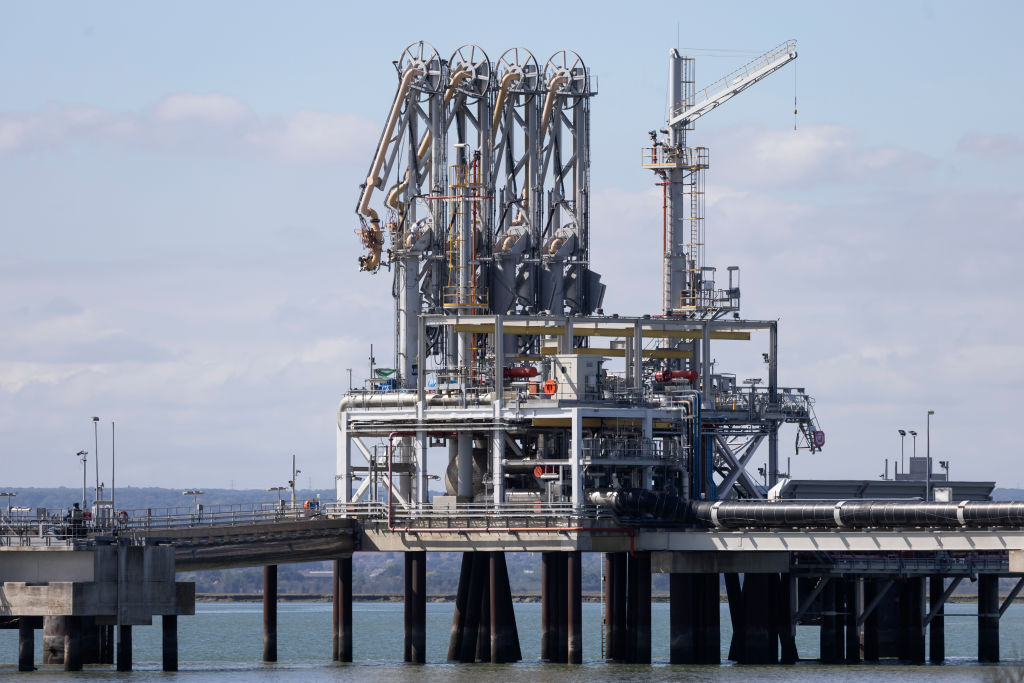The government says it wants to stop the ‘blockers’ which are holding back Britain’s economy. It also says it wants to boost the nation’s energy security. How convenient, then, that along comes a project which could achieve both at the same time. The only trouble is that it is something which will drive Ed Miliband nuts.
Over the next few weeks, it is reported, a little-known oil and gas company, Egdon Resources, will announce that it has discovered 480 billion cubic metres worth of shale gas reserves in a large trough extending westwards of the Lincolnshire town of Gainsborough. Onshore oil and gas is Egdon’s business – it already operates small wells in the Midlands and Dorset. Its discovery in the Gainsborough trough, however, dwarfs all that. To put it into context, in 2023 the UK consumed 63.5 billion cubic metres of gas. This one field alone, in other words, could supply the UK with gas for nearly eight years.
It isn’t hard to imagine how Miliband will react. Gas is yesterday’s industry, he will say. The price of gas from Gainsborough would (somehow) be set by a bevy of overseas dictators, so it wouldn’t reduce our bills. The way for Britain to get ahead will be to invest in the industries of tomorrow – namely wind and solar, which will send our bills tumbling.
Miliband has been advancing these arguments for years now, but there are signs that finally other members of the government are beginning to see through him. No, global gas prices are not set by dictators. By far the largest producer of natural gas is the US. Moreover, whatever global gas prices, a large slice of the cost of gas to consumers comes in the form of transporting the stuff – which would be far cheaper from Lincolnshire than by refrigerated ship from the US or Qatar.
Liquified Natural Gas (LNG), which has accounted for increasing proportion of gas consumed in Britain and the rest of Europe since the Ukraine war, is not just expensive to transport, it also ends up increasing carbon emissions because around 10 per cent of the fuel is consumed in the process of liquifying it and regasifying it. According to Deloitte, which has been employed by Egdon to run its fingers through the figures, exploiting the Lincolnshire field would save 218 million tonnes of carbon emissions relative to importing the gas instead.
As for Miliband’s idea that wind and solar save us money, that is not quite how things are working out: the UK already generates a higher proportion of its electricity of wind and solar than virtually any other country, but where are the savings? The UK has the highest electricity prices of any country which is a member of the International Energy Agency. Even Miliband would not deny that Britain is going to require gas from many years to come, even in the unlikely event that he did achieve his dream of decarbonising the grid by 2030. His latest plans involve keeping as much gas generating capacity as we have now, as back up when wind and solar fails. Moreover, electricity only accounts for one sixth of total energy use. Replacing gas for domestic heating and industrial processes will take far longer than decarbonising the grid.
Logic, then, strongly suggests that the government should embrace the Gainsborough gas field – lifting in order to do so the moratorium on fracking introduced by Boris Johnson. What is there to lose by advancing a policy which will boost energy security, grow GDP, improve our balance of payments and cut carbon emissions to boot? Moreover, it isn’t taxpayers which would be taking the risk with the project, but a private company. No-one should count on common sense where net zero is concerned, however. Are Starmer and Reeves – who have advocated growth as the government’s number one priority – strong enough to take on Miliband and the rest of Labour’s green mafia?








Comments